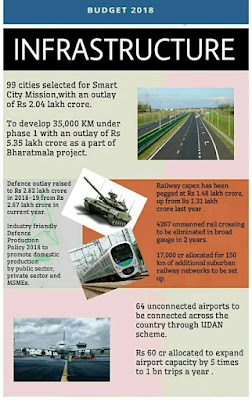Are we intelligent, educated or literate?
Are we intelligent, educated or literate?
'The function of education is to teach one to think intensively and to think critically.
Intelligence plus character- that is the goal of true education.’
- Martin Luther King, Jr.
Intelligence plus character- that is the goal of true education.’
- Martin Luther King, Jr.
King’s words are as true today as when he spoke them. As I see young students struggling with their textbooks, trying to memorise all that it has, not making bare minimum efforts to comprehend what they are actually putting into their precious minds, I get worried. I get worried about not only their future, but sometimes also about mine and many of my generation, who are part of a society where the idea of education, and unfortunately intelligence, is limited to proficiency in numeracy or literacy. Real intelligence is today what you use in academic studies. Being educated requires that you know everything, even if it means that you actually know nothing about how to make use of that ‘everything’.
“Picasso once said that all children are born artists. The problem is to remain an artist as we grow up. I believe passionately that we don’t grow into creativity, we grow out of it. We are educated out of it”, said Sir Ken Robinson, one of the world’s most influential educators, at a TED event in 2006, making a profoundly moving case for creating an education system that nurtures creativity.
Today, having a degree in a particular field or varied disciplines defines education. But the real aim of education is to enable us to become fulfilled individuals and active, compassionate citizens by understanding the world around us, and learn to critically analyse ideas and situations. Certainly, this paves the way for the idea of intelligence - the ability to learn, acquire, assimilate and use new knowledge. We need to keep our minds open, the creativity of the mind is critical for our development as individuals. But innovation and imagination are rarely valued in a country like ours, where learning is information based, not knowledge based. Schools, colleges and other institutions of higher education are killing creativity, requiring students to merely learn facts and processes, not telling them the significance of these in day- to-day life. Our ability to think, imagine and more importantly question, is smothered the moment we enter a formal learning environment. A closed mind cannot be called intelligent, maybe just educated. Or are we just literate, learning to read and write, without having the skill to make use of what we learn for our growth as well as of others’? Finland has set a striking example for countries like India through its newly introduced curriculum reforms. Emphasising on the importance of multi- disciplinary approach to education, Finland has introduced the concept of phenomenon based learning,
which aims to remove school subjects from the curriculum. This concept was introduced to keep students involved and engaged in their studies by adopting a collaborative approach, making them work in small groups. The focus is on understanding a phenomenon, such as global warming, through different approaches- mathematical, scientific, historical etc. This
provides students with multiple points of view for a particular concept, integrating different subjects and themes in a single class. The textbook way of learning employed in Indian schools provides ready-made answers to questions, and judges students on their ability to reproduce theories on paper during tests. On the other hand, the Finnish education system
protects children from rote learning, helping them to question, ponder and apply the
knowledge acquired, where necessary. This is the true aim of education- to make learning an interesting and organic process for students.
The Indian education system needs to rethink and redesign its curriculum. The methods do not have to be copied, but should be applied according to the Indian scenario. It is also important for us to understand that Intelligence is something inbuilt. We have to stop suppressing it; instead, we should foster it by keeping our inquisition alive. Only then will we
be called well-educated, intelligent citizens.
Sanchi Agarwal


True comment on what is actually happening around in schools and colleges today. Wish our generation comes together for a bigger motive of knowledge acquiring.
ReplyDelete